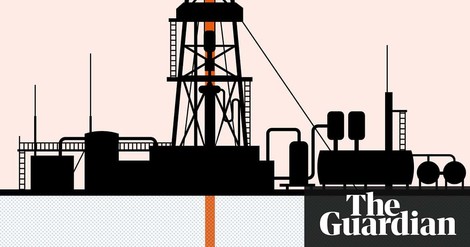Your podcast discovery platform
Curious minds select the most fascinating podcasts from around the world. Discover hand-piqd audio recommendations on your favorite topics.

piqer for: Climate and Environment Global finds Globalization and politics
I'm a freelance journalist, currently based in Madrid. I used to be a News Producer at CNBC in London before, but I thought a little bit more sun might do me good. Now I write for several news organizations, covering a range of topics, from Spanish politics and human rights for Deutsche Welle to climate change for La Marea.
A Crash Course In Fracking
Short for 'hydraulic fracturing', fracking is a technique used to extract hydrocarbons (mostly gas, but oil too) from shale rock formations using high-pressure fluids to crack them. It has meant a revolution for the energy industry in the last decade or so.
But fracking is also one of the most controversial initiatives in the already controversial fossil fuel scene. From earthquakes to the drinking water pollution, the technique is being denounced by several sides. Several governments have banned it, with Scotland one of the last to join states such as France, Germany or Ireland. In countries like Brazil and Argentina, it faces stern opposition and regional moratoriums. Even in the fracking-friendly US and UK common people are very often against it.
You've heard the term, but if you haven't caught up yet with what we are really talking about here, this article is for you. Adam Vaughan's crash course in fracking is precise and very well structured. It starts with a brief explanation of how a fracking operation works and then moves on to explain its history and the controversy around it. Vaughan wraps it up with a quick forecast (although this section could be better). The text is full of links for sourcing and further reading, and the graphs are helpful.
I have missed a couple controversial points, nonetheless: First, fracking operations require a lot of water, which means diverting it from other purposes in an ever-drier planet. Second, methane leaks are often difficult and expensive to control in any fossil gas operation, increasing the speed at which our planet warms (methane is a powerful greenhouse gas).
However, I was pleased to see that the author looked at the big picture when presenting the controversy. Issues such as water pollution and seismic events are difficult to attribute, but extracting and burning ever more fossil fuels will certainly lead us to catastrophic climate change.
Stay up to date – with a newsletter from your channel on Climate and Environment.
